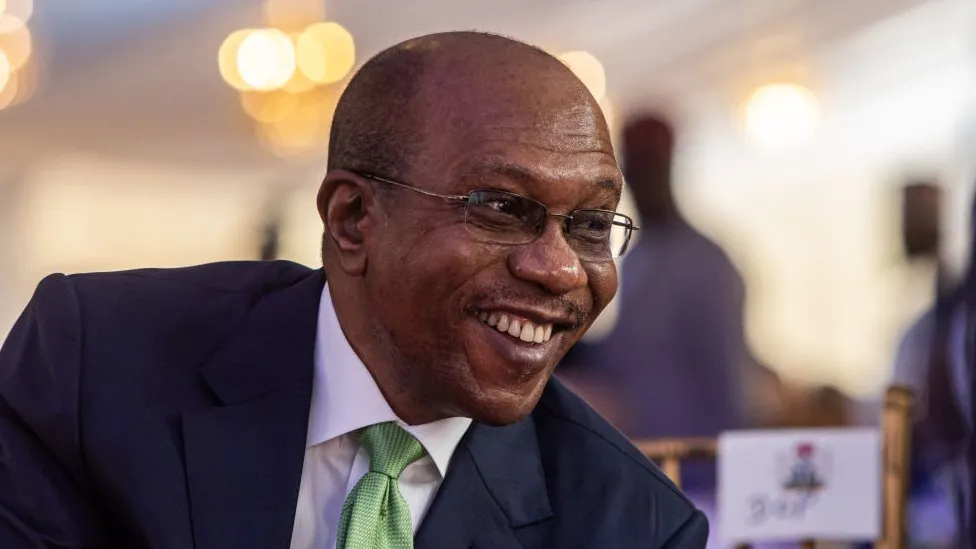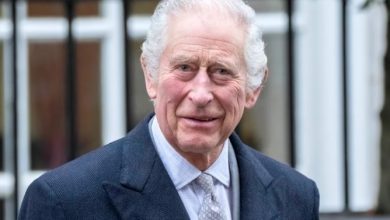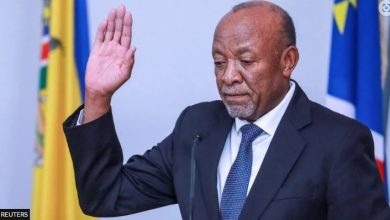EU rebuffs Netanyahu on Jerusalem
The EU’s foreign policy chief says there is “full EU unity” in support of Jerusalem becoming the capital of both Israel and a future Palestinian state. Federica Mogherini said the bloc’s member states would not recognise the city as Israel’s capital before a final status peace agreement.
She spoke after meeting Israeli Prime Minister Benjamin Netanyahu, who wants the EU to follow the US in doing so. President Donald Trump’s move prompted widespread international criticism.
Ms Mogherini, who was speaking at a news conference in Brussels alongside Mr Netanyahu, said the EU would continue to recognise the “international consensus” on Jerusalem. “There is full EU unity on this, that the only realistic solution to the conflict between Israel and Palestine is based on two states with Jerusalem as the capital of both the state of Israel and the state of Palestine.
“The EU and member states will continue to respect the international consensus on Jerusalem until the final status of the holy city is resolved, through direct negotiations between the parties.” But Mr Netanyahu said the US decision was a recognition of “reality”. He is in Brussels for talks with EU foreign ministers – the first time an Israeli prime minister has visited the city in more than 20 years.
Mr Trump’s announcement drew worldwide condemnation and sparked protests which continued for a fifth day on Monday. In the West Bank, dozens of Palestinians threw stones at Israeli soldiers. Palestinian militants in Gaza fired a rocket into Israel, and the Israeli military said it responded with air strikes and tank fire targeting a position of Hamas, the Islamist group that controls the territory, reports say.
Protests are continuing in the region, including Dahia, the Hezbollah stronghold in Beirut. Speaking from an undisclosed location, Hezbollah leader Hassan Nasrallah said: “Trump thought that when he made his announcement… capitals around the world and in Arab countries would rush to support him. “Now he seems isolated, only supported by Israel. This position is very important and should be built upon.”
Embassy move
As well as recognising Jerusalem, President Trump also said he was directing the US state department to prepare to move the US embassy from Tel Aviv to Jerusalem. Russian President Vladimir Putin has for a second time on Monday criticised Mr Trump’s decision to move the US embassy.
Speaking in Ankara, Turkey, after talks with his counterpart Recep Tayyip Erdogan, Mr Putin said: “Both Russia and Turkey think that the US administration’s decision to recognise Jerusalem as Israel’s capital and to move the American embassy there is not helping the settlement of the situation in the Middle East.
“Effectively, this could erase the prospects for the Palestinian-Israeli peace process.”
Why Trump’s move was controversial
Israel regards Jerusalem as its “eternal and undivided” capital, while the Palestinians claim East Jerusalem – occupied by Israel since 1967 – as the capital of a future Palestinian state.
Israeli sovereignty over Jerusalem has never been recognised internationally, and all countries maintain their embassies in Tel Aviv. According to the 1993 Israel-Palestinian peace accords, the final status of Jerusalem is meant to be discussed in the latter stages of peace talks. Since 1967, Israel has built a dozen settlements, home to about 200,000 Jews, in East Jerusalem.
These are considered illegal under international law, though Israel disputes this. Jerusalem is also home to key religious sites sacred to Judaism, Islam and Christianity, especially in East Jerusalem.
Source: BBC





